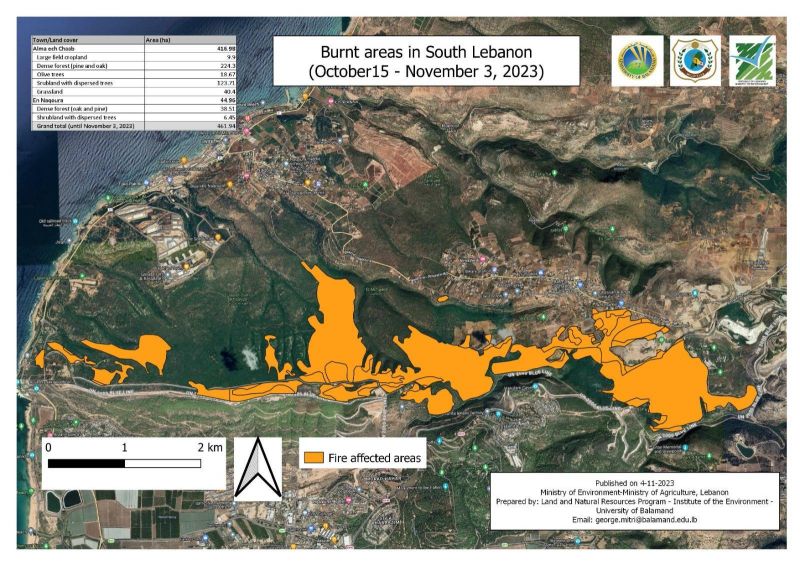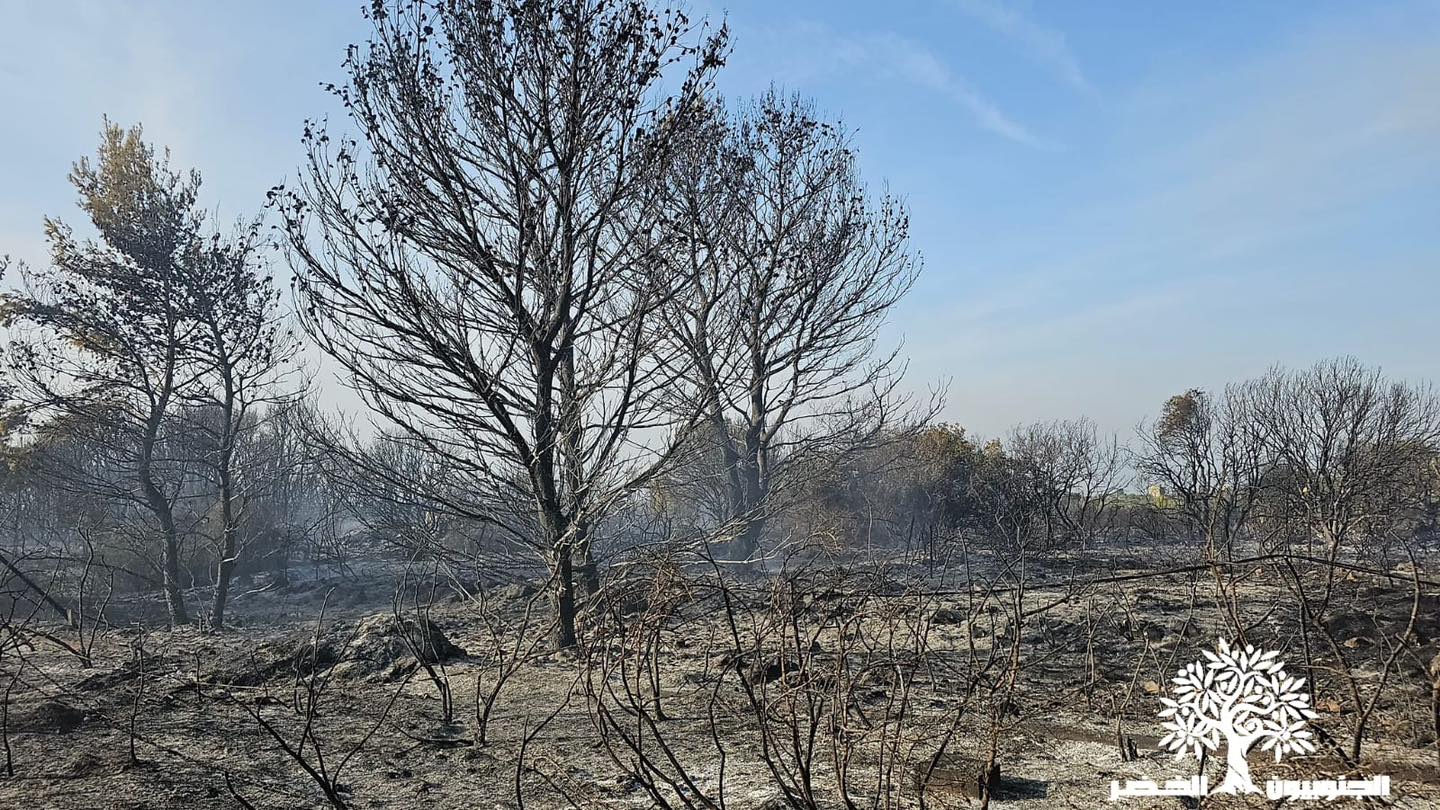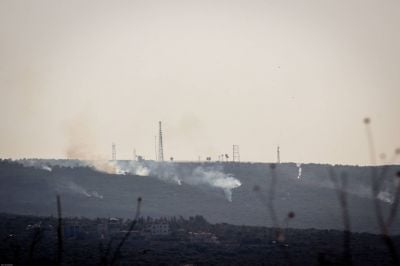
A map provided by Georges Mitri showing the extent of the fires in southern Lebanon since the fighting began. The yellow areas are those affected by the fires.
In just one month, approximately 462 hectares (4.6 million m²) of woodland, "notably pines and oaks, as well as around 20 hectares of centuries-old olive groves," have been destroyed by Israeli airstrikes, said Georges Mitri, Director of the Land and Natural Resources Programme at Balamand University.
Since the escalation of tensions between Hezbollah and the Israeli army on Oct. 8, the latter has used white phosphorus to set fire to forests and fields in border areas. The 1980 Geneva Convention, which Israel has not signed, prohibits the use of white phosphorous on civilians and in civilian areas due to its devastating effects on humans, animals and the environment.
"As far as the forests are concerned, we have lost not only oaks and pines but also other trees that are characteristic of the region, such as terebinths," said Hicham Younes, President of Green Southerners, an NGO with no political affiliation, active in the south of the country.
Younes also noted the detrimental effects of white phosphorous on wildlife. "The forests of this region are a habitat for many species such as the golden jackal, particularly prevalent in the Rmeich region. We have previously observed numerous colonies of rock hyraxes and small rodents, in this region, which, even in their burrows, may have now been decimated. The badgers are also likely to have been affected.” Because white phosphorus lingers in the air for a long time, it also poses a threat to migratory birds, which cross the Lebanese skies this time of year, as well as a diverse variety of insects.
Slower regeneration
Mitri explained that the fires caused by the phosphorus bombs are fierce, and the recovery process of the burned areas will take a very long time. "These fires are very difficult to extinguish because they ignite in several places simultaneously," Mitri underlined. "What makes the phenomenon worse is that we are still in the midst of the fire season, following months of dry weather, and the first rains have not been sufficient to moisten the earth," he added.
 One of the forests burnt down in southern Lebanon following the Israeli bombardments. Photo from Green Southerners.
One of the forests burnt down in southern Lebanon following the Israeli bombardments. Photo from Green Southerners.
Another challenge the firefighters face is the inability to reach fires quickly, due to the continuous shelling. Civil Defence firefighters sustained minor injuries on Oct. 27 while attempting to extinguish fires in Labouneh and Alma el-Chaab, near Sour. Failure to extinguish fires in time exacerbates their impact on the forests, as they spread to neighboring agricultural land.
In an interview on Monday, caretaker Minister of Environment Nasser Yassine said Lebanon intended to "file a well-documented complaint against the scorched-earth policy and the use of phosphorus bombs" carried out by the Israeli army in southern Lebanon. Based on a figure of 4.6 million square meters of burnt land in the South, Yassine has tallied "more than 100 fires” since Oct. 15, “that have impacted ecologically significant forests, as well as agricultural fields and tens of thousands of olive trees."
Twenty million dollars in losses
Amid the ongoing economic crisis, the attacks targeting olive groves ahead of harvest season have a major negative impact on the local economy in the area.
"Traditionally, people gather around the olive trees, harvest their crops, press their oil together... A big part of their lives is being lost," lamented Younes.
“The olive trees being burned are centuries old," he pointed out. “If we were to replant them today, how long would it be before these fields became productive?” Giving an estimate of the economic losses attributed to the daily fires in the South, Mitri put the figure at nearly 20 million dollars.
In the long term, Younes is particularly concerned about the environmental impact of the phosphorus bombs. "We have no choice but to wait until the end of hostilities before assessing the situation on the ground," he said. In Younes’ view, the greater the rate of absorption of phosphorus into the soil and water, the greater the risk of dramatic long-term consequences on Lebanon’s environment.
